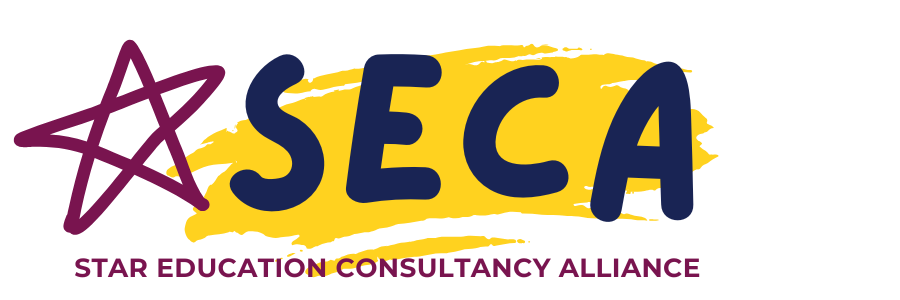Master of Logistics and Supply Chain Management
Course Details
- Duration: Typically 1.5 to 2 years full-time.
- Prerequisites: A bachelor’s degree in business, logistics, supply chain management, engineering, or a related field.
- Delivery Mode: On-campus, online, or blended learning options may be available.
Specializations
Operations Management: Focus on improving efficiency and effectiveness in manufacturing and service operations.
Strategic Management: Development of strategic initiatives and leadership skills in supply chain contexts.
Digital Supply Chain: Application of digital technologies such as blockchain, IoT, and AI in supply chain management.
Sustainable Supply Chain: Practices in sustainable procurement, green logistics, and corporate social responsibility.
Learning Outcomes
Analytical Skills: Ability to analyze supply chain data and make data-driven decisions.
Problem-Solving: Skills to identify and address logistics and supply chain challenges.
Strategic Thinking: Development of strategic plans and initiatives to optimize supply chain performance.
Leadership and Collaboration: Effective leadership and collaboration within cross-functional teams.
Course Fees and Eligibility Requirements
Fee
Tuition fee for this course usually ranges to AUD 30,000 – 40,000 per year.
Eligibility Requirements
Academic Qualifications
- A completed undergraduate degree in business, management, engineering, or a related field.
- Some programs may accept a degree in another field if accompanied by relevant work experience.
English Language Proficiency
- IELTS: Minimum overall score of 6.5, with no band below 6.0.
- TOEFL iBT: Minimum score of 79, with at least 21 in writing.
- PTE Academic: Minimum score of 58, with no communicative skill score below 50.
Contact us

Master of Logistics and Supply Chain Management
A Master of Logistics and Supply Chain Management from an Australian university equips students with advanced knowledge and skills in managing the flow of goods and services from point of origin to consumption. Here’s a detailed description:
Overview
Duration: Typically 1.5 to 2 years full-time.
Prerequisites: A bachelor’s degree in business, logistics, supply chain management, engineering, or a related field.
Delivery Mode: On-campus, online, or blended learning options may be available.
Curriculum
1. Core Subjects:
Supply Chain Management: Strategies for optimizing supply chain operations and logistics.
Logistics and Distribution: Techniques for managing transportation, warehousing, and inventory.
Procurement and Sourcing: Practices in sourcing raw materials and managing supplier relationships.
Global Supply Chain: Understanding international logistics, trade regulations, and global sourcing.
2. Specializations (options may vary by institution):
Operations Management: Focus on improving efficiency and effectiveness in manufacturing and service operations.
Strategic Management: Development of strategic initiatives and leadership skills in supply chain contexts.
Digital Supply Chain: Application of digital technologies such as blockchain, IoT, and AI in supply chain management.
Sustainable Supply Chain: Practices in sustainable procurement, green logistics, and corporate social responsibility.
Learning Outcomes
Analytical Skills: Ability to analyze supply chain data and make data-driven decisions.
Problem-Solving: Skills to identify and address logistics and supply chain challenges.
Strategic Thinking: Development of strategic plans and initiatives to optimize supply chain performance.
Leadership and Collaboration: Effective leadership and collaboration within cross-functional teams.
Assessment
Assignments and Case Studies: Analytical reports, case studies, and industry-focused projects.
Examinations: Assessments of theoretical knowledge and practical applications in logistics and supply chain management.
Simulations and Workshops: Hands-on simulations and workshops to apply theoretical concepts to real-world scenarios.
Career Opportunities
Supply Chain Manager: Overseeing logistics operations and supply chain strategies.
Logistics Manager: Managing transportation, warehousing, and distribution activities.
Procurement Specialist: Managing procurement processes and supplier relationships.
Consultant: Providing advisory services to improve supply chain efficiency and effectiveness.
Benefits
Industry Relevance: Curriculum aligned with industry standards and practices in logistics and supply chain management.
Networking Opportunities: Access to industry professionals, guest speakers, and alumni networks.
Career Advancement: Preparation for leadership roles and opportunities for professional development in global supply chain environments.
It’s advisable to check specific course details, including specializations, industry partnerships, and practical components like internships or industry projects, from the university of interest, as program offerings may vary.
Over the last 35 Years we made an impact that is strong & we have long way to go.
These are the concepts that shape our distinctive culture & differentiate us from others. They true the unique spirit of our Firm guide the behaviors that enable us to deliver the promises we make to our clients and our people.
Tourist Visa
Broad term that can refer to various aspects of interconnectedness and communication on a global scale.Family Visa
Broad term that can refer to various aspects of interconnectedness and communication on a global scale.Student
Broad term that can refer to various aspects of interconnectedness and communication on a global scale.Work Permit
Broad term that can refer to various aspects of interconnectedness and communication on a global scale.Visa Process
At Immigway our culture comes to life through three core values:


Which is the prerequisites for immigration to Canada?
What are the contact address of Immigway?
Which is the prerequisites for immigration to Canada?
What IELTS Score required for Canada?
Service Options



